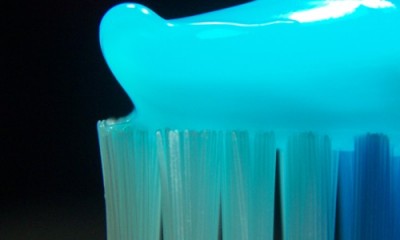Choosing the Best Type of Toothpaste for Your Needs
Published:September 19th, 2012 There is a huge choice of toothpaste on the market, so how do you choose the best one for your needs? It’s best to consider what you’d like your toothpaste to do for you, and to think about your oral health requirements. Toothpaste comes in a number of different forms including powder, gel and paste, but all contain similar ingredients. These include:
There is a huge choice of toothpaste on the market, so how do you choose the best one for your needs? It’s best to consider what you’d like your toothpaste to do for you, and to think about your oral health requirements. Toothpaste comes in a number of different forms including powder, gel and paste, but all contain similar ingredients. These include:
- Some sort of abrasive agent that will help remove plaque bacteria, excess food particles and surface staining from your teeth
- Most contain some sort of artificial flavouring or sweetener to improve the taste, and although the majority of toothpastes are mint flavoured, it is possible to choose alternative flavours such as cinnamon
- Toothpastes contain agents to help them stay moist, and to prevent them from drying out
- They also contain thickening agents to maintain texture
- The foam produced by toothpastes is caused by a detergent
Common types of toothpastes include the following:
Fluoride toothpastes
A lot of toothpastes contain fluoride which is a naturally occurring mineral. Fluoride is already found in some public water supplies and in certain foods and is an important mineral for helping to reduce tooth decay. Fluoride helps to protect the teeth from the acids produced by plaque bacteria as they feed off sugars and starches remaining in the month after eating and drinking.
Fluoride helps to strengthen the tooth enamel, lessening the chance of acid erosion. Using this type of toothpastes will help increase the concentration of fluoride in your teeth, and it’s best just to spit out the excess toothpaste after brushing rather than rinsing with water.
Tartar control toothpastes
Tartar is a substance formed by hardened plaque bacteria. If plaque bacteria aren’t removed regularly through brushing and flossing then they can harden into tartar within just 24 hours.
This layer can only be removed by your hygienist or dentist during professional cleaning, and if allowed to build up can irritate the gums causing inflammation and infection, eventually leading to gum disease. Tartar control toothpastes contain a number of anti-plaque agents such as pyrophosphates and zinc citrate that have been proven to be effective in controlling tartar. Most tartar control toothpastes also contain fluoride.
Toothpastes to reduce sensitivity
Having sensitive teeth is a common problem, and it can make eating and drinking hot and cold foods quite unpleasant. This is because these sensations travel through tubules in the dentin layer of the tooth to the nerves within the centre of the tooth, creating pain and sensitivity. Toothpastes for sensitive teeth can lessen this sensitivity by blocking up these tubules as they contain chemical compounds such as strontium chloride or potassium nitrate. They are pretty good, but may need to be used for a few weeks for the full effects to be felt.
Whitening toothpastes
Whitening toothpastes contains mild abrasives or chemicals to gently remove surface stains. The agents used in these toothpastes shouldn’t damage the tooth enamel, and the effects aren’t particularly dramatic but will help freshen up your smile very slightly.
When choosing the best toothpastes for your needs, it’s worth looking for one that has received approval from an authority such as the British Dental Association. This means the product will have been independently evaluated for its effectiveness and safety by scientific experts.
About the author
 Alison, is a UK born and educated dental professional with over 25 years experience.
Alison, is a UK born and educated dental professional with over 25 years experience.




Write a Comment of Choosing the Best Type of Toothpaste for Your Needs